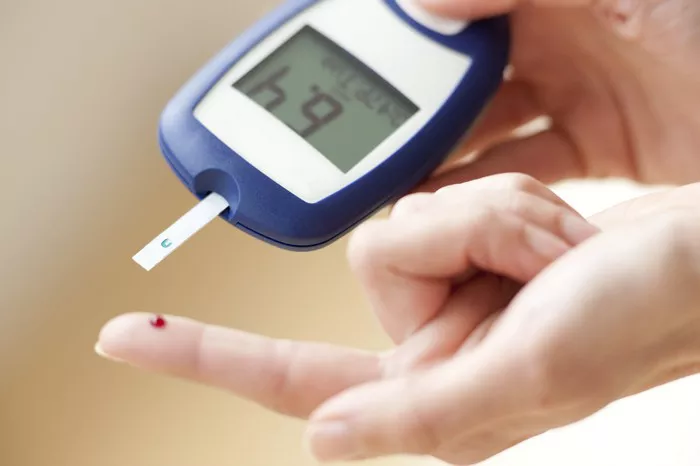Hypoglycemia, defined as an abnormally low level of glucose in the blood, is a common concern for individuals with diabetes. However, it can also occur in people without diabetes under certain circumstances. While hypoglycemia is often associated with symptoms such as shakiness, sweating, and confusion, its effects can extend far beyond these immediate manifestations. In this article, we will delve into the various physiological, psychological, and cognitive effects of hypoglycemia, as well as its potential long-term implications.
Physiological Effects of Hypoglycemia
Activation of Counterregulatory Hormones: When blood glucose levels drop, the body initiates a series of hormonal responses aimed at restoring glucose to normal levels. These counterregulatory hormones include glucagon, epinephrine (adrenaline), cortisol, and growth hormone. Glucagon stimulates the liver to release stored glucose (glycogen) into the bloodstream, while epinephrine increases heart rate, triggers the release of glucose from the liver, and promotes the breakdown of glycogen into glucose. Cortisol and growth hormone also contribute to elevating blood sugar levels.
Symptoms of Autonomic Activation: Hypoglycemia activates the sympathetic nervous system, leading to symptoms such as sweating, palpitations, tremors, and hunger. These symptoms are often referred to as adrenergic symptoms and result from the release of epinephrine.
Neuroglycopenia: Severe hypoglycemia can impair brain function due to inadequate glucose supply. This condition, known as neuroglycopenia, can manifest as confusion, slurred speech, irritability, seizures, and loss of consciousness. The brain relies almost exclusively on glucose as its energy source, and prolonged hypoglycemia can lead to neuronal dysfunction and damage.
Cardiovascular Effects: Hypoglycemia can have significant cardiovascular effects, particularly in individuals with preexisting heart disease. Acute hypoglycemia may lead to arrhythmias, myocardial ischemia, and even myocardial infarction in susceptible individuals. The release of catecholamines during hypoglycemia can also increase blood pressure and heart rate, potentially exacerbating cardiovascular symptoms.
Impact on Kidney Function: Prolonged or recurrent episodes of hypoglycemia may adversely affect kidney function. Hypoglycemia-induced activation of the sympathetic nervous system can lead to renal vasoconstriction and reduced renal blood flow, potentially compromising kidney function over time.
Psychological and Cognitive Effects of Hypoglycemia
Mood Disturbances: Hypoglycemia can cause mood swings, irritability, anxiety, and depression. These psychological symptoms may be attributed to the neurochemical changes induced by low blood glucose levels, as well as the stress response triggered by hypoglycemia.
Cognitive Impairment: Acute hypoglycemia can impair cognitive function, including attention, memory, processing speed, and executive function. Individuals may experience difficulty concentrating, making decisions, or performing complex tasks during episodes of low blood sugar. The severity of cognitive impairment often correlates with the degree and duration of hypoglycemia.
Risk of Hypoglycemia Unawareness: Repeated exposure to hypoglycemia can lead to hypoglycemia unawareness, a dangerous condition in which individuals fail to recognize the symptoms of low blood sugar. Hypoglycemia unawareness increases the risk of severe hypoglycemic episodes, as affected individuals may not take appropriate action to raise their blood glucose levels promptly.
Impact on Quality of Life: Recurrent hypoglycemia can significantly impact an individual’s quality of life, leading to fear of hypoglycemia, social withdrawal, and avoidance of activities that may increase the risk of low blood sugar. Fear of hypoglycemia can also contribute to poor diabetes self-management and medication adherence.
Long-Term Implications of Hypoglycemia
Cognitive Decline: Some research suggests that recurrent hypoglycemia may contribute to cognitive decline and an increased risk of dementia in individuals with diabetes. Chronic exposure to low blood glucose levels may accelerate age-related cognitive decline and impair neuroplasticity, leading to long-term cognitive deficits.
Cardiovascular Events: Severe hypoglycemia has been associated with an increased risk of cardiovascular events, including myocardial infarction, stroke, and cardiovascular mortality. The physiological stress imposed by hypoglycemia, as well as its effects on cardiac function and rhythm, may contribute to adverse cardiovascular outcomes in vulnerable individuals.
Mortality Risk: Hypoglycemia is associated with an elevated risk of mortality, particularly in older adults and those with multiple comorbidities. Severe hypoglycemic episodes can precipitate life-threatening complications, such as arrhythmias, seizures, and cerebral edema, which may result in death if not promptly treated.
Impact on Diabetes Management: Fear of hypoglycemia and hypoglycemia unawareness can complicate diabetes management and lead to suboptimal glycemic control. Individuals may intentionally maintain higher blood sugar levels to avoid hypoglycemia, increasing their risk of long-term complications associated with hyperglycemia.
Psychosocial Burden: The psychosocial impact of hypoglycemia should not be overlooked, as it can significantly affect an individual’s emotional well-being, relationships, and overall quality of life. Fear of hypoglycemia may lead to feelings of anxiety, depression, and social isolation, further exacerbating the psychological burden of living with diabetes.
Conclusion
Hypoglycemia can have profound physiological, psychological, and cognitive effects, as well as significant long-term implications for individuals with diabetes. It is essential for healthcare providers to recognize the multifaceted nature of hypoglycemia and its impact on overall health and well-being. Comprehensive management strategies aimed at preventing hypoglycemia, educating patients about its signs and symptoms, and addressing psychosocial factors are crucial in optimizing outcomes and enhancing the quality of life for individuals living with diabetes.
Related topics:
Why Do I Get Hypoglycemia After Eating

























